Amar Bose, founder of Bose Corporation, has died. He was 83.
Acoustics pioneer Amar Bose, founder and chairman of the audio technology company Bose Corporation, has died at age 83. Bose's death was announced on Friday by the Massachusetts Institute of Technology.
Bose's death was announced yesterday by his company Bose Corp's president, Bob Maresca, and the Massachusetts Institute of Technology, where Bose was on the faculty for more than 40 years.
Bose died yesterday at his home in Wayland, Massachusetts. His death was confirmed by his son, Dr Vanu G Bose.
"Dr Bose founded Bose Corporation almost 50 years ago with a set of guiding principles centred on research and innovation," Maresca was quoted by New York Times as saying in a statement. "That focus has never changed." Bose was born on November 2, 1929, in Philadelphia. His father, Noni Gopal Bose, was a Bengali freedom fighter who was studying physics at the Calcutta University when he was arrested and imprisoned for his opposition to British rule.
Noni Gopal Bose escaped and fled to the US in 1920, where he married an American school teacher.
At age 13, Bose began repairing radio sets for pocket money for repair shops in Philadelphia. During World War II, when his father's import business struggled, Bose's electronics repairs helped support the family.
Bose's devotion to research was matched by his passion for teaching. Having earned his bachelor's, master's and doctorate degrees in electrical engineering at the Massachusetts Institute of Technology in the 1950s, Bose returned from a Fulbright scholarship at the National Physical Laboratory in New Delhi and joined the MIT faculty in 1956.
As founder and chairman of the privately held company, Bose focused relentlessly on acoustic engineering innovation.
His speakers, though expensive, earned a reputation for bringing concert-hall-quality audio into the home.
And by refusing to offer stock to the public, Bose was able to pursue risky long-term research, such as noise-cancelling headphones and an innovative suspension system for cars, without the pressures of quarterly earnings announcements.
A perfectionist and a devotee of classical music, Bose was disappointed by the inferior sound of a high-priced stereo system he purchased when he was an MIT engineering student in the 1950s.
His interest in acoustic engineering piqued, he realised that 80 per cent of the sound experienced in a concert hall was indirect, meaning that it bounced off walls and ceilings before reaching the audience.
This realisation, using basic concepts of physics, formed the basis of his research.
Bose and his ex-wife, Prema, had two children, Vanu, now the head of his own company, Vanu Inc. in Cambridge, Massachusetts, and Maya Bose, who survive him, as does his second wife, Ursula, and one grandchild.
During his long tenure at MIT, Dr. Bose made his mark both in research and in teaching. In 1956, he started a research program in physical acoustics and psychoacoustics: This led to his development of many patents in acoustics, electronics, nonlinear systems and communication theory, an MIT obit reads.
With agency inputs
![submenu-img]() Centre's strict warning to its employees on tardiness, suggests live location detection system for...
Centre's strict warning to its employees on tardiness, suggests live location detection system for...![submenu-img]() T20 World Cup: Pakistan survive Ireland scare, win by 3 wickets in their last league match
T20 World Cup: Pakistan survive Ireland scare, win by 3 wickets in their last league match![submenu-img]() 'Why don't you...': Rupali Ganguly slams troll who accused her of paid PR against Anupamaa actor Gaurav Khanna's wife
'Why don't you...': Rupali Ganguly slams troll who accused her of paid PR against Anupamaa actor Gaurav Khanna's wife![submenu-img]() NEET-UG 2024 exam row: Bihar Police recovers 6 post-dated cheques 'issued for question paper facilitators'
NEET-UG 2024 exam row: Bihar Police recovers 6 post-dated cheques 'issued for question paper facilitators'![submenu-img]() Renukaswamy murder case: Darshan, Pavithra Gowda's to remain in police custody till...
Renukaswamy murder case: Darshan, Pavithra Gowda's to remain in police custody till...![submenu-img]() Meet man, who once worked as stone breaker, sold tendu leaves, then cracked PSC exam to become...
Meet man, who once worked as stone breaker, sold tendu leaves, then cracked PSC exam to become...![submenu-img]() Meet IAS officer, IIT graduate who left high-paying job at Samsung, then cracked UPSC exam, got AIR..
Meet IAS officer, IIT graduate who left high-paying job at Samsung, then cracked UPSC exam, got AIR..![submenu-img]() Meet MIT graduate who secured 42nd rank in UPSC, is now suspended due to..
Meet MIT graduate who secured 42nd rank in UPSC, is now suspended due to..![submenu-img]() Railway Recruitment 2024: Sarkari Naukri alert for 1104 posts, check eligibility and selection process
Railway Recruitment 2024: Sarkari Naukri alert for 1104 posts, check eligibility and selection process![submenu-img]() NEET-UG exam row: 'Transparent process will be...,' assures Education Minister Dharmendra Pradhan to students, parents
NEET-UG exam row: 'Transparent process will be...,' assures Education Minister Dharmendra Pradhan to students, parents![submenu-img]() DNA Verified: Did Kangana Ranaut party with gangster Abu Salem? Actress reveals who's with her in viral photo
DNA Verified: Did Kangana Ranaut party with gangster Abu Salem? Actress reveals who's with her in viral photo![submenu-img]() DNA Verified: New Delhi Railway Station to be closed for 4 years? Know the truth here
DNA Verified: New Delhi Railway Station to be closed for 4 years? Know the truth here![submenu-img]() DNA Verified: Did RSS chief Mohan Bhagwat praise Congress during Lok Sabha Elections 2024? Know the truth here
DNA Verified: Did RSS chief Mohan Bhagwat praise Congress during Lok Sabha Elections 2024? Know the truth here![submenu-img]() DNA Verified: Is CAA an anti-Muslim law? Centre terms news report as 'misleading'
DNA Verified: Is CAA an anti-Muslim law? Centre terms news report as 'misleading'![submenu-img]() DNA Verified: Lok Sabha Elections 2024 to be held on April 19? Know truth behind viral message
DNA Verified: Lok Sabha Elections 2024 to be held on April 19? Know truth behind viral message![submenu-img]() From Jawan to Munjya, 5 films that showcased exceptional VFX and ruled box office recently
From Jawan to Munjya, 5 films that showcased exceptional VFX and ruled box office recently![submenu-img]() In pics: Raghubir Yadav, Chandan Roy celebrate success of Panchayat season 3 with TVF founder Arunabh Kumar, cast, crew
In pics: Raghubir Yadav, Chandan Roy celebrate success of Panchayat season 3 with TVF founder Arunabh Kumar, cast, crew![submenu-img]() How Kalki 2898 AD makers dared to dream pan-India with its unique promotional campaign for Prabhas-starrer
How Kalki 2898 AD makers dared to dream pan-India with its unique promotional campaign for Prabhas-starrer![submenu-img]() In pics: Prabhas' robotic car Bujji from Kalki 2898 AD takes over Mumbai streets, fans call it 'India's Batmobile'
In pics: Prabhas' robotic car Bujji from Kalki 2898 AD takes over Mumbai streets, fans call it 'India's Batmobile'![submenu-img]() Streaming This Week: Bade Miyan Chote Miyan, Maidaan, Gullak season 4, latest OTT releases to binge-watch
Streaming This Week: Bade Miyan Chote Miyan, Maidaan, Gullak season 4, latest OTT releases to binge-watch![submenu-img]() DNA Explainer: What is Kafala system that is prevalent in gulf countries? Why is it considered extremely brutal?
DNA Explainer: What is Kafala system that is prevalent in gulf countries? Why is it considered extremely brutal? ![submenu-img]() Lok Sabha Elections 2024: What are exit polls? When and how are they conducted?
Lok Sabha Elections 2024: What are exit polls? When and how are they conducted?![submenu-img]() DNA Explainer: Why was Iranian president Ebrahim Raisi seen as possible successor to Ayatollah Khamenei?
DNA Explainer: Why was Iranian president Ebrahim Raisi seen as possible successor to Ayatollah Khamenei?![submenu-img]() DNA Explainer: Why did deceased Iranian President Ebrahim Raisi wear black turban?
DNA Explainer: Why did deceased Iranian President Ebrahim Raisi wear black turban?![submenu-img]() Iran President Ebrahim Raisi's death: Will it impact gold, oil prices and stock markets?
Iran President Ebrahim Raisi's death: Will it impact gold, oil prices and stock markets?![submenu-img]() 'Why don't you...': Rupali Ganguly slams troll who accused her of paid PR against Anupamaa actor Gaurav Khanna's wife
'Why don't you...': Rupali Ganguly slams troll who accused her of paid PR against Anupamaa actor Gaurav Khanna's wife![submenu-img]() Renukaswamy murder case: Darshan, Pavithra Gowda's to remain in police custody till...
Renukaswamy murder case: Darshan, Pavithra Gowda's to remain in police custody till...![submenu-img]() Ahead of Sonakshi Sinha-Zaheer Iqbal's wedding, his sister welcomes actress in family, shares their photo with heart
Ahead of Sonakshi Sinha-Zaheer Iqbal's wedding, his sister welcomes actress in family, shares their photo with heart![submenu-img]() 'I don't take any bull****': Anurag Kashyap reacts to surge of entourage cost; blames producers, actors' agencies for...
'I don't take any bull****': Anurag Kashyap reacts to surge of entourage cost; blames producers, actors' agencies for...![submenu-img]() Watch: Aamir Khan breaks down, sings Babul Ki Duwayein Leti Ja in unseen video from Ira Khan-Nupur Shikhare's wedding
Watch: Aamir Khan breaks down, sings Babul Ki Duwayein Leti Ja in unseen video from Ira Khan-Nupur Shikhare's wedding![submenu-img]() Tiny but mighty: Buffalo calf fearlessly charges elephant to defend mom, viral video
Tiny but mighty: Buffalo calf fearlessly charges elephant to defend mom, viral video![submenu-img]() Viral video: Lavish celebration goes wrong as firecrackers injure baby and mother
Viral video: Lavish celebration goes wrong as firecrackers injure baby and mother![submenu-img]() Video of girl walking with tiger wearing hot dress goes viral, watch
Video of girl walking with tiger wearing hot dress goes viral, watch![submenu-img]() Meet Saurabh Netravalkar's wife, Devi Snigdha Muppala: An accomplished high achiever in her own right
Meet Saurabh Netravalkar's wife, Devi Snigdha Muppala: An accomplished high achiever in her own right![submenu-img]() Stolen Titian Renaissance painting found at London bus stop, set to sell for up to..
Stolen Titian Renaissance painting found at London bus stop, set to sell for up to..











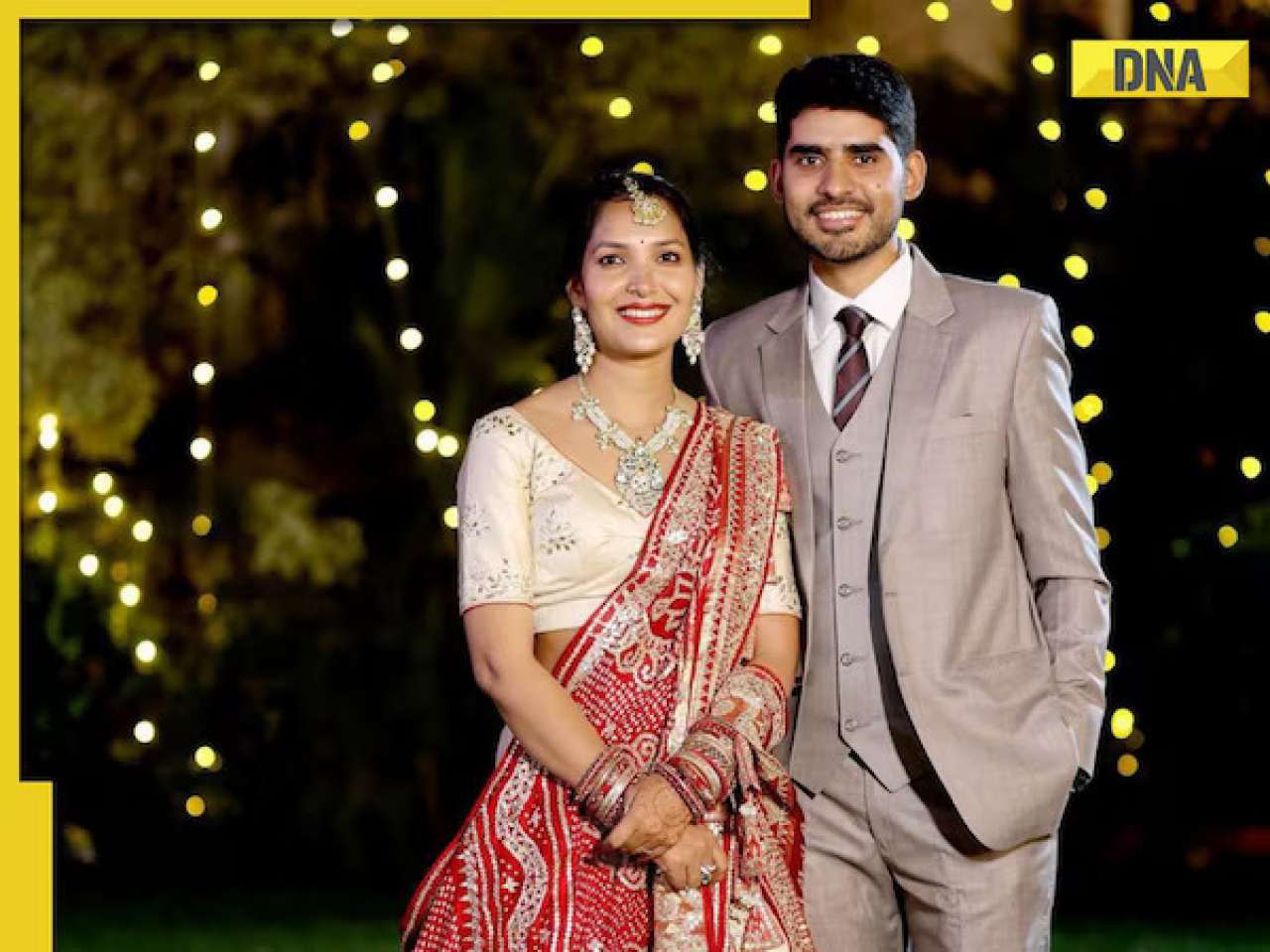
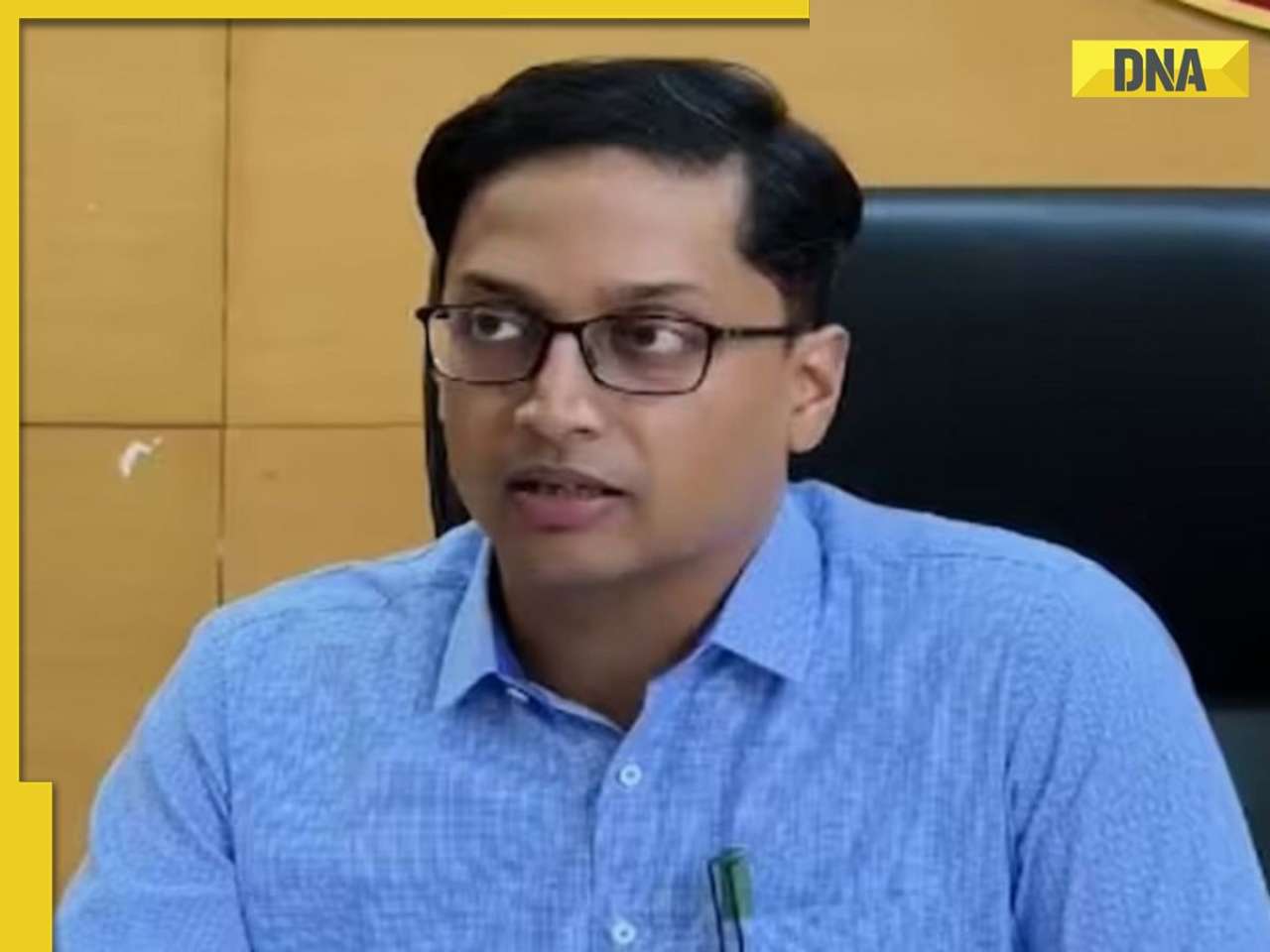








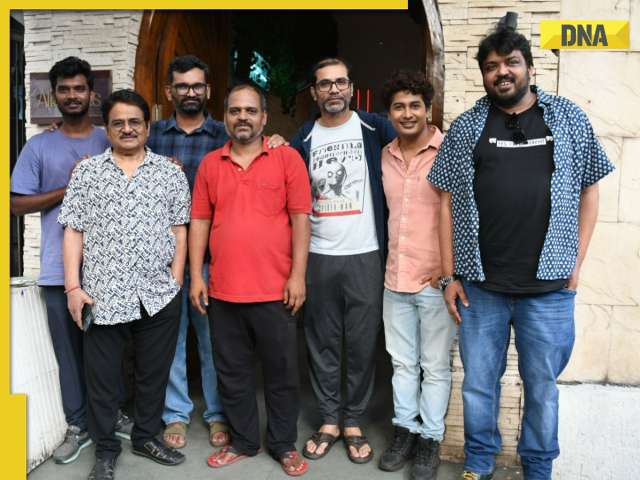

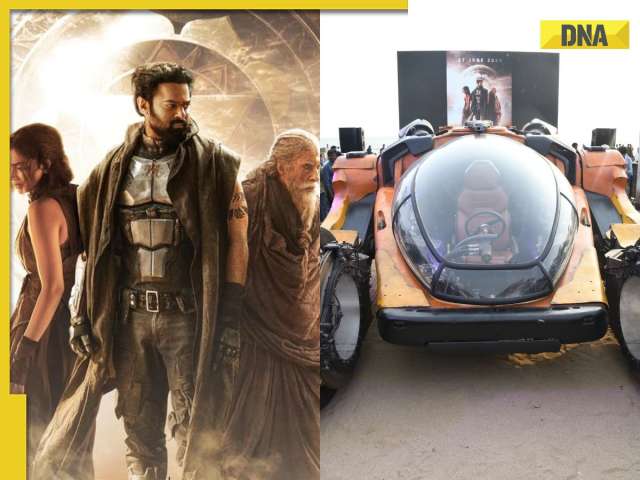







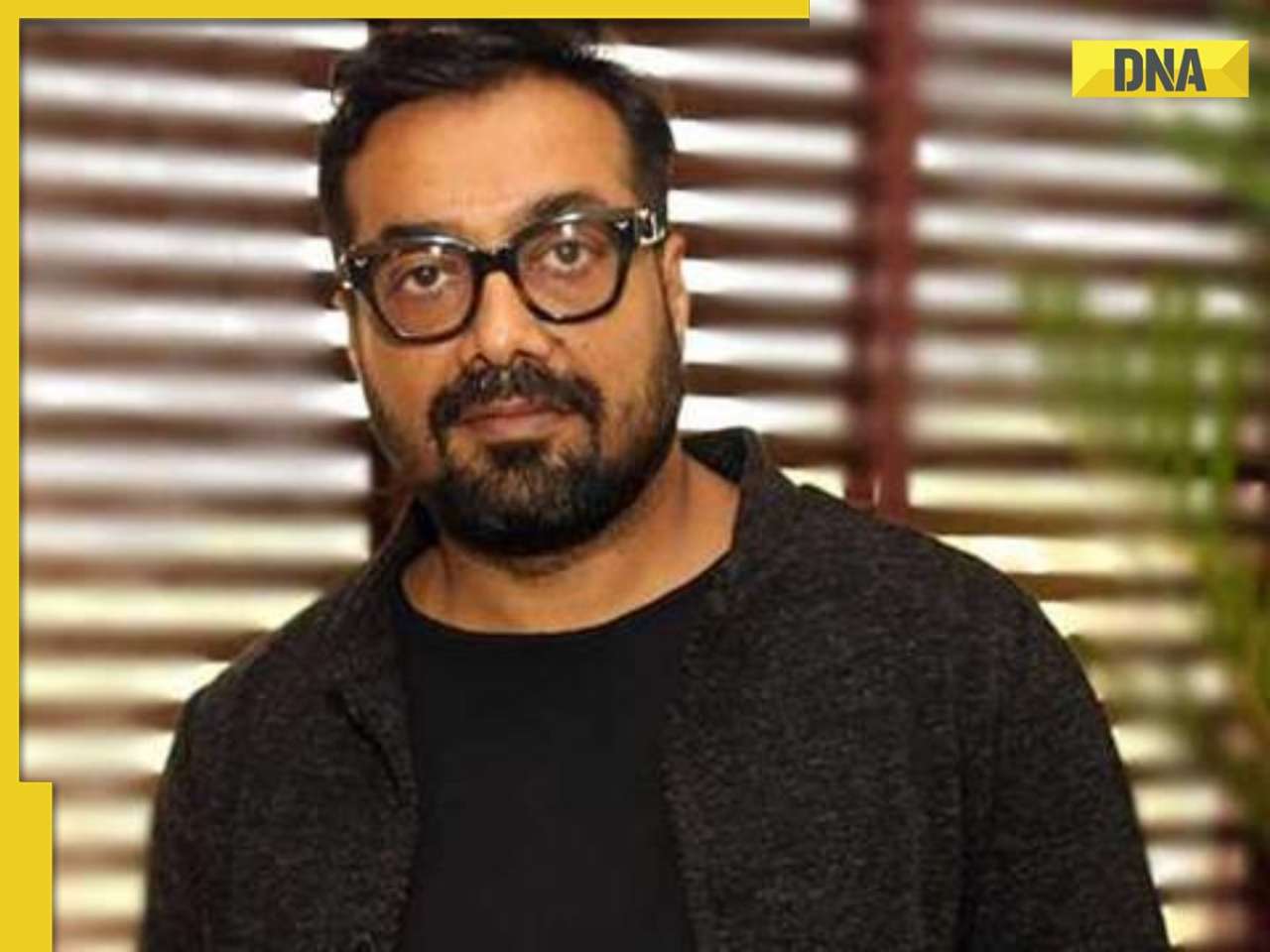





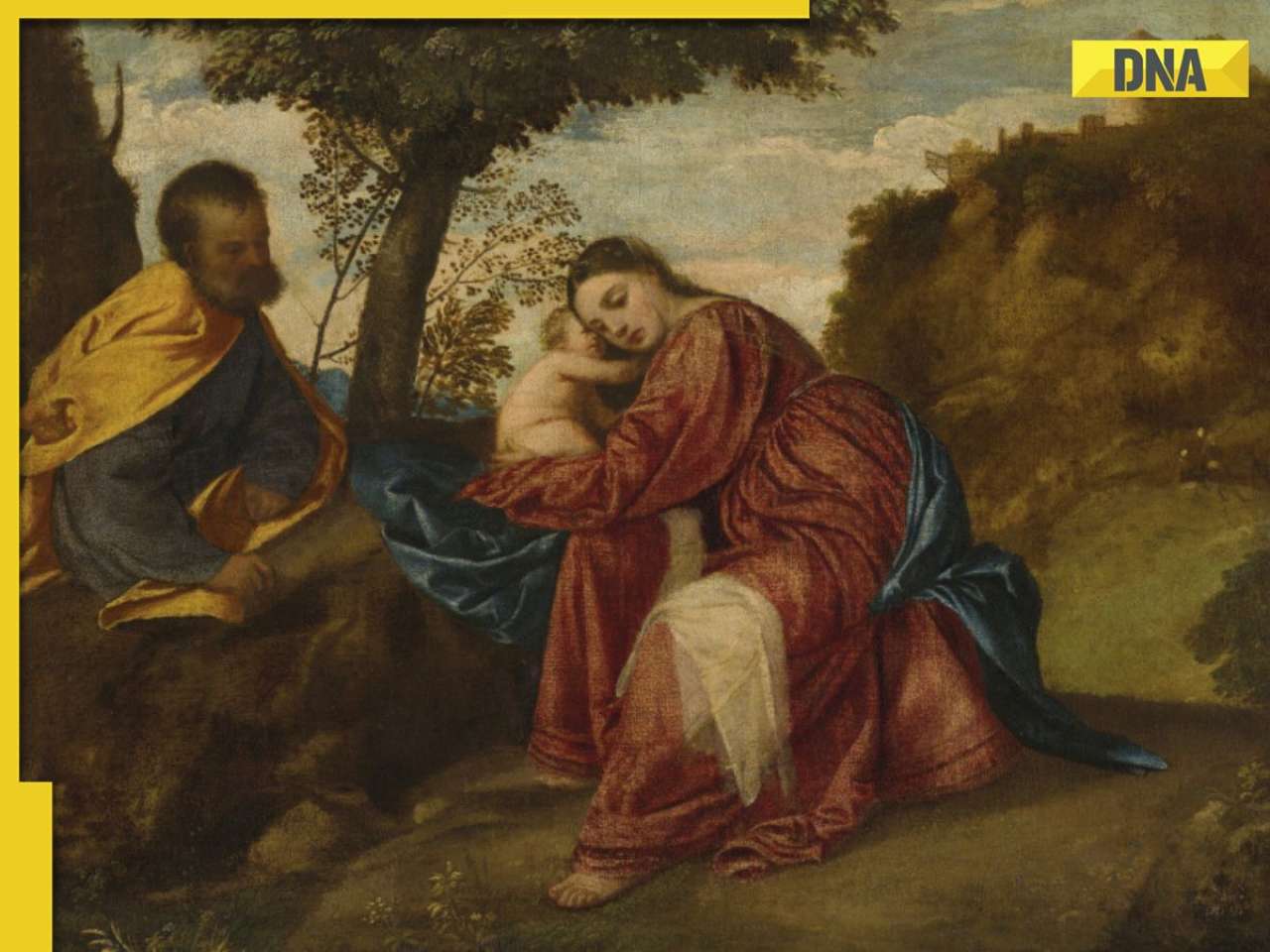

)
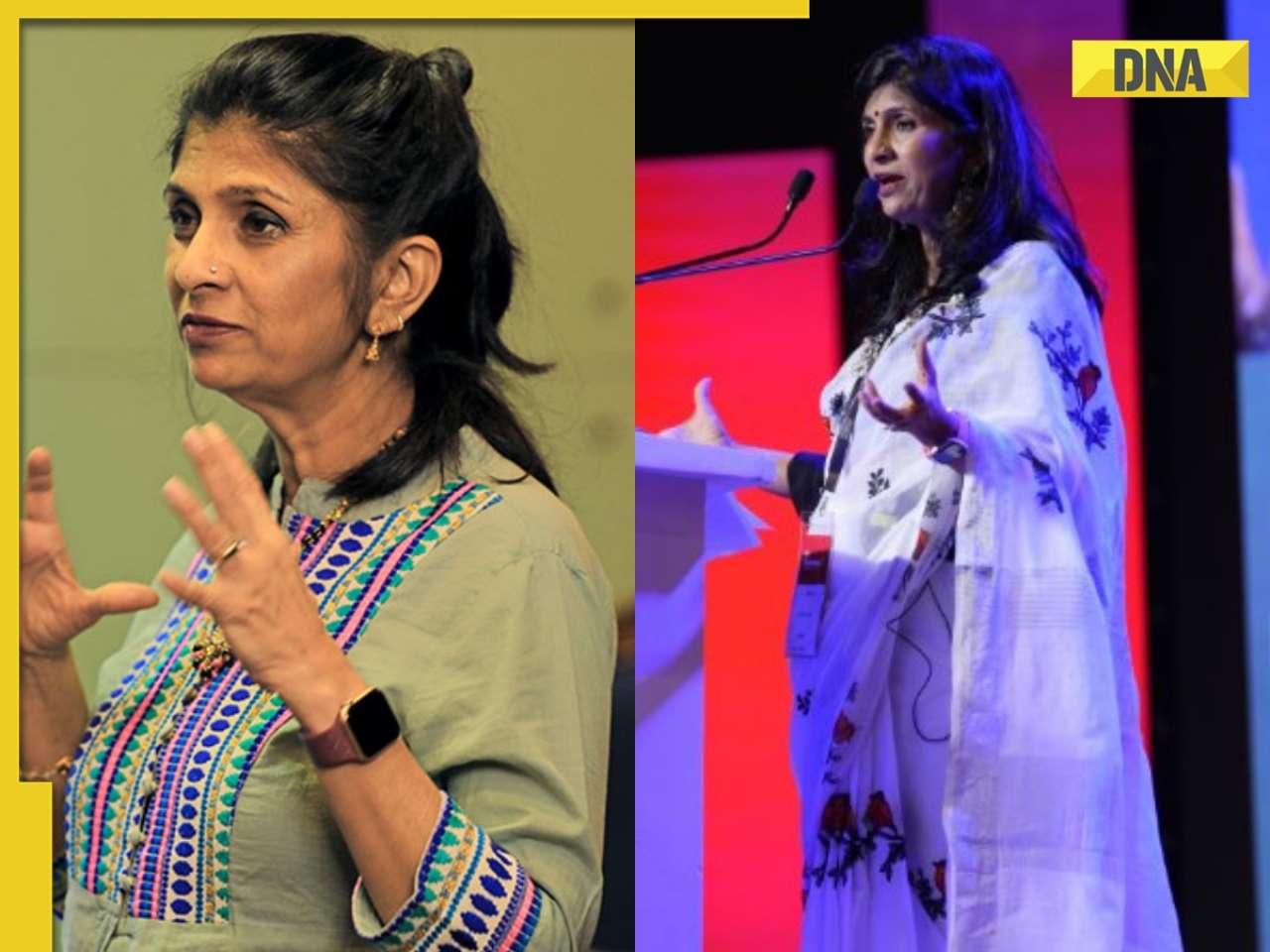
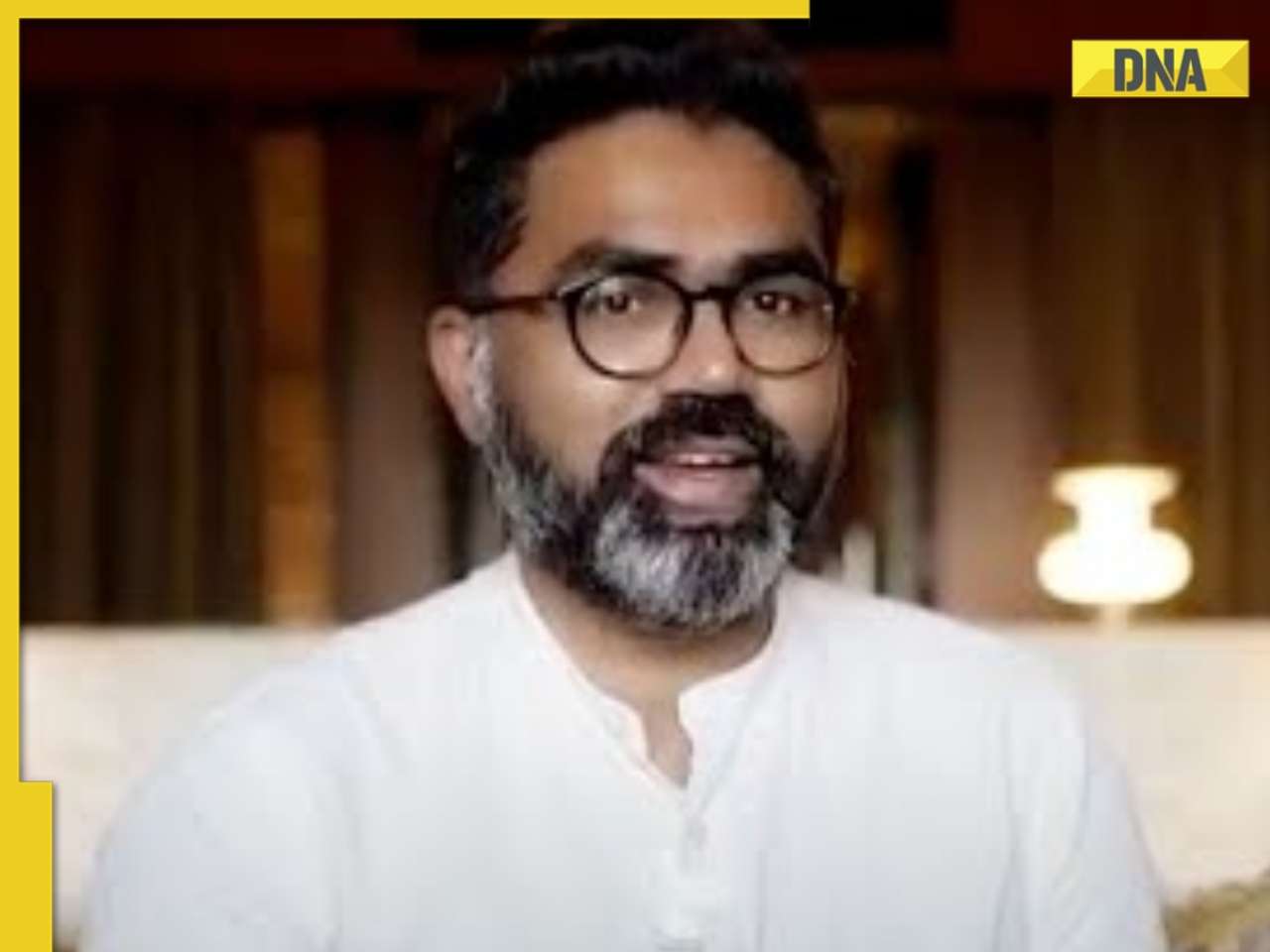


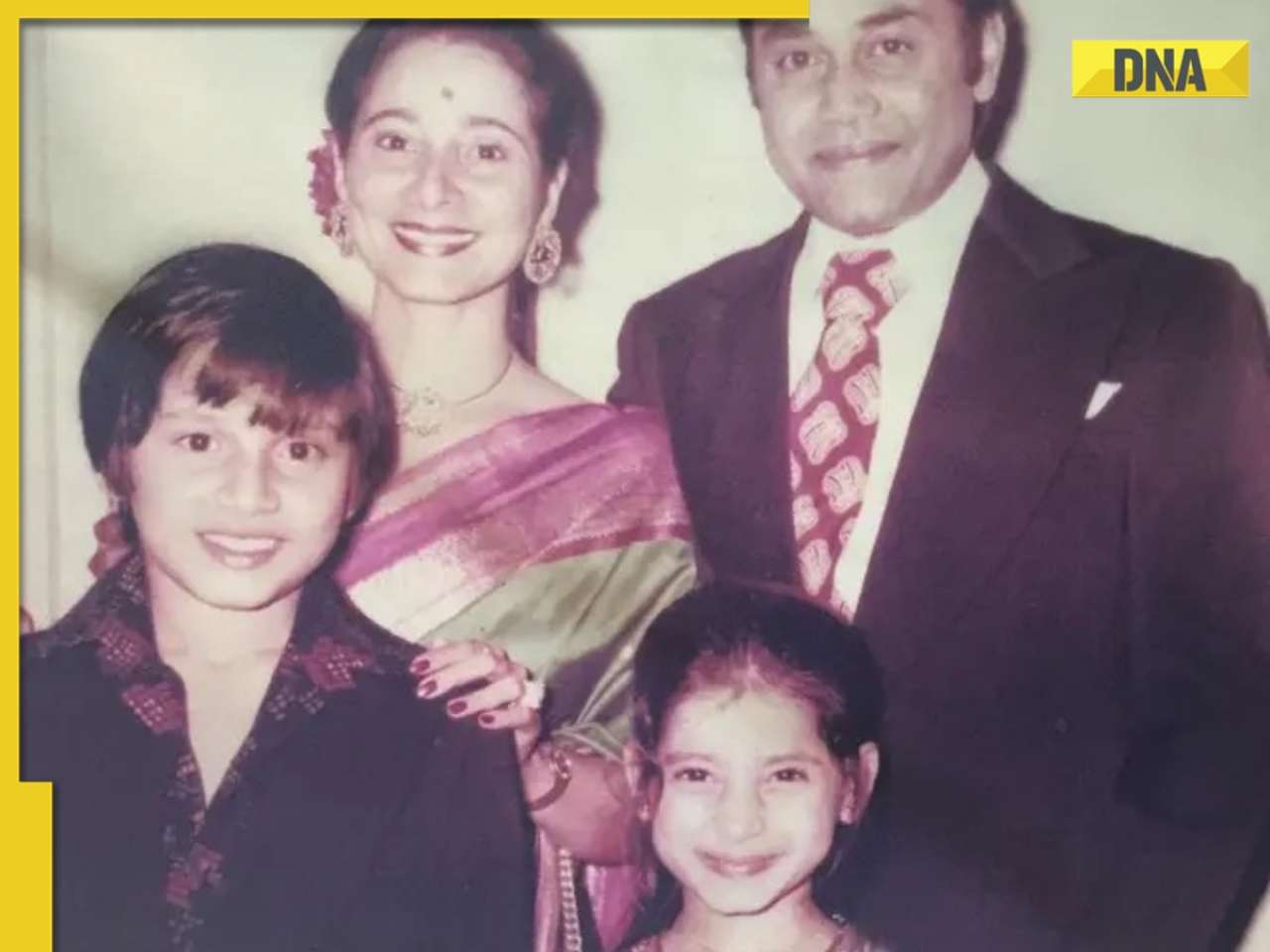

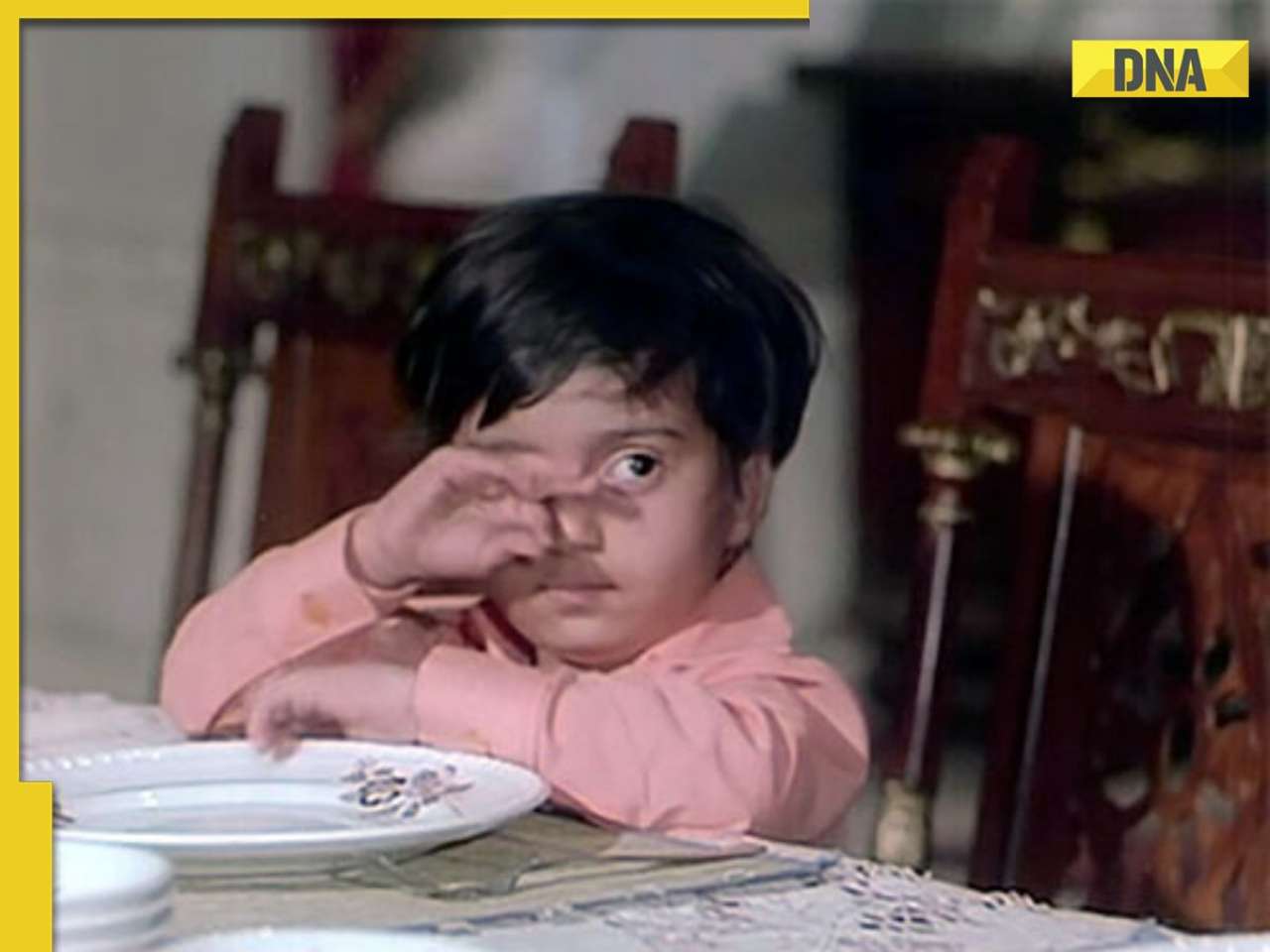
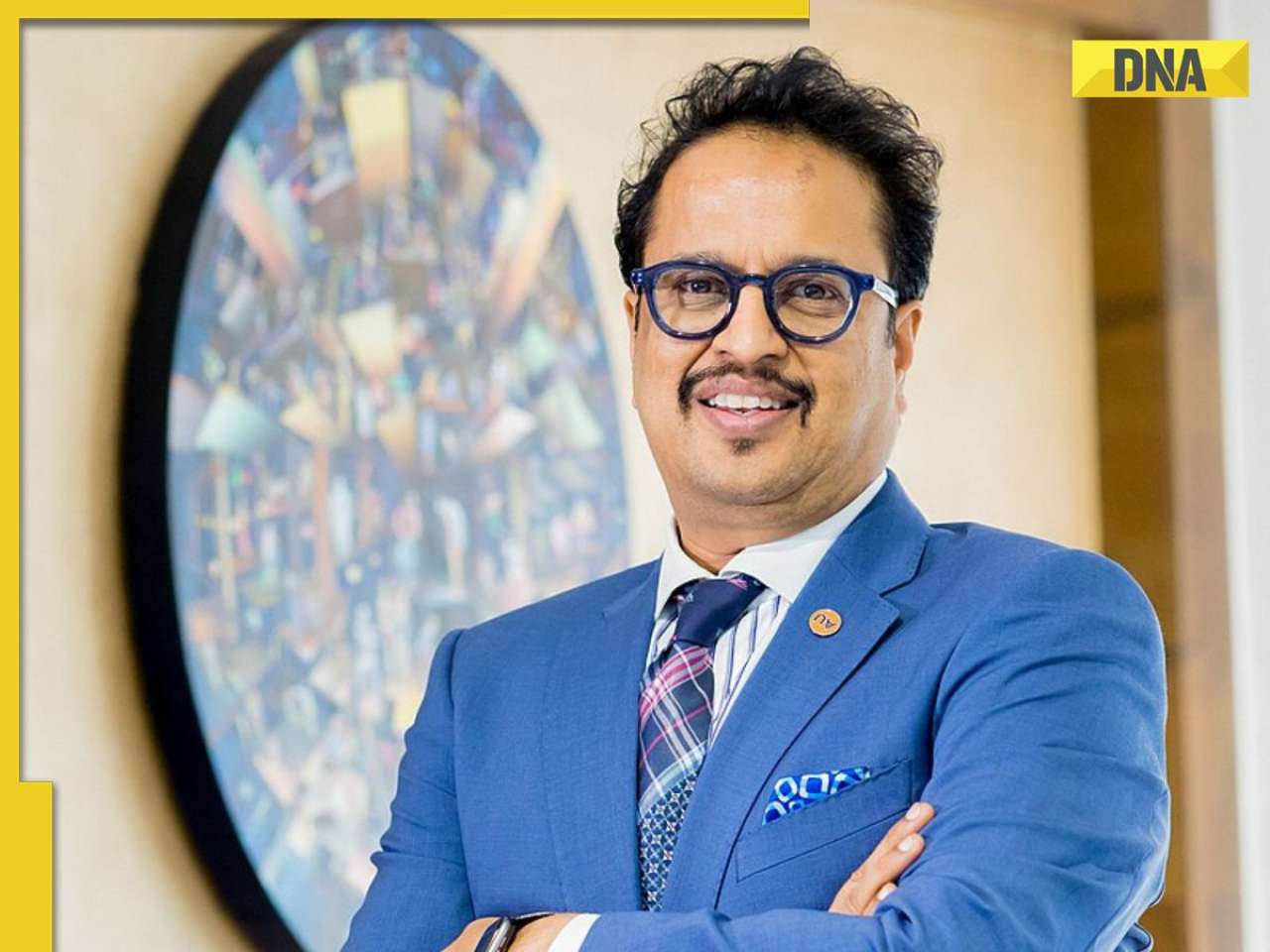
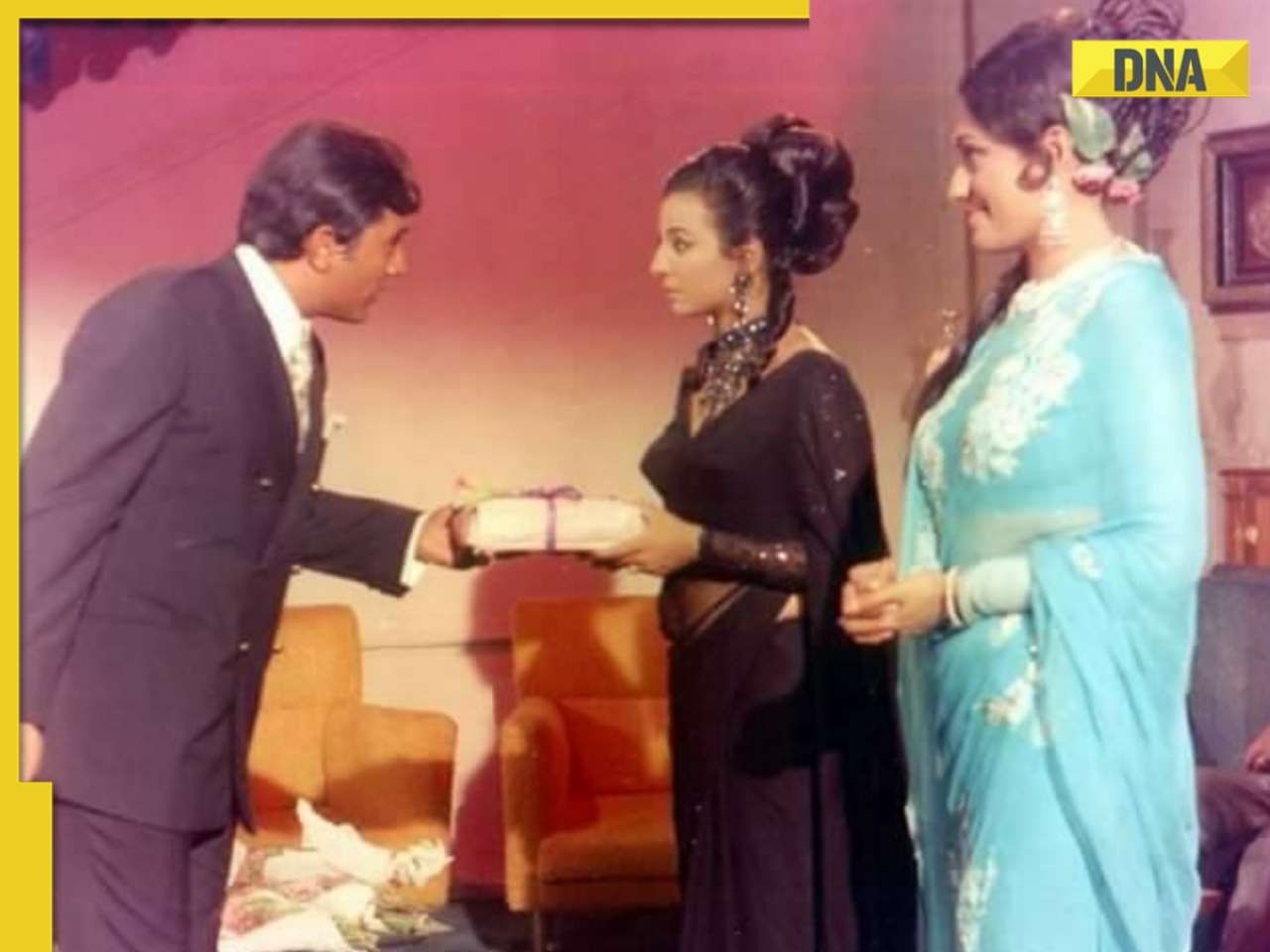


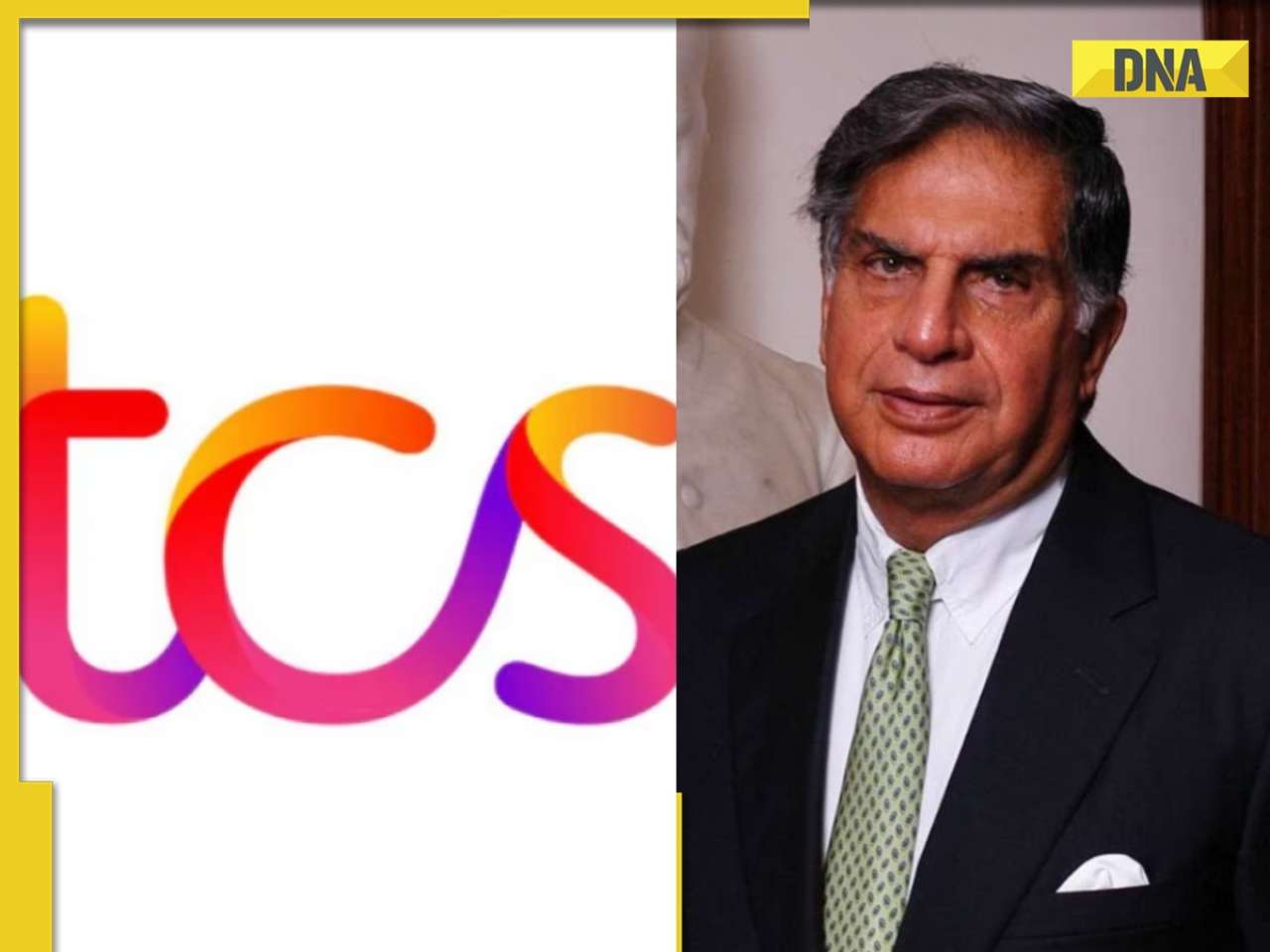
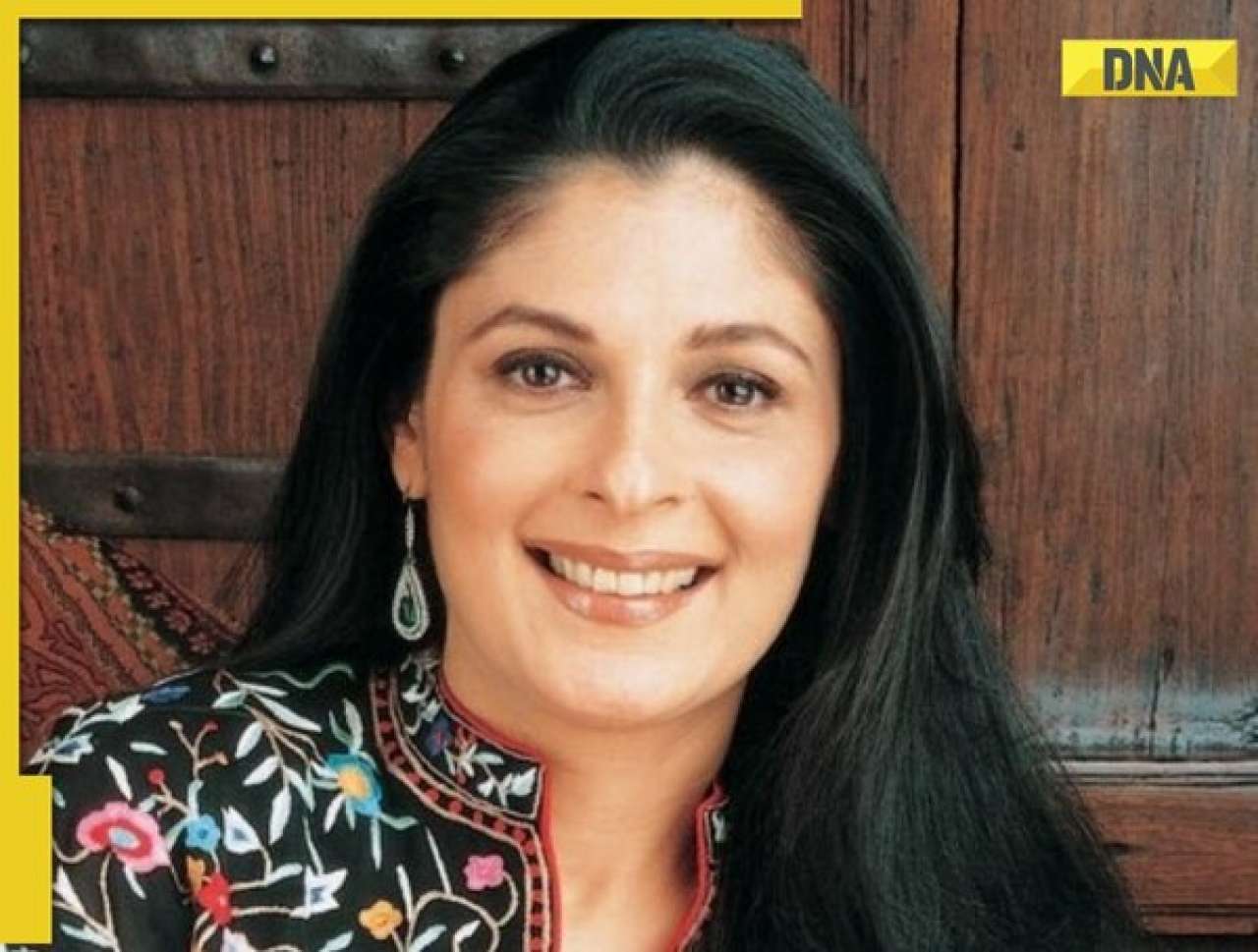




)
)
)
)
)
)